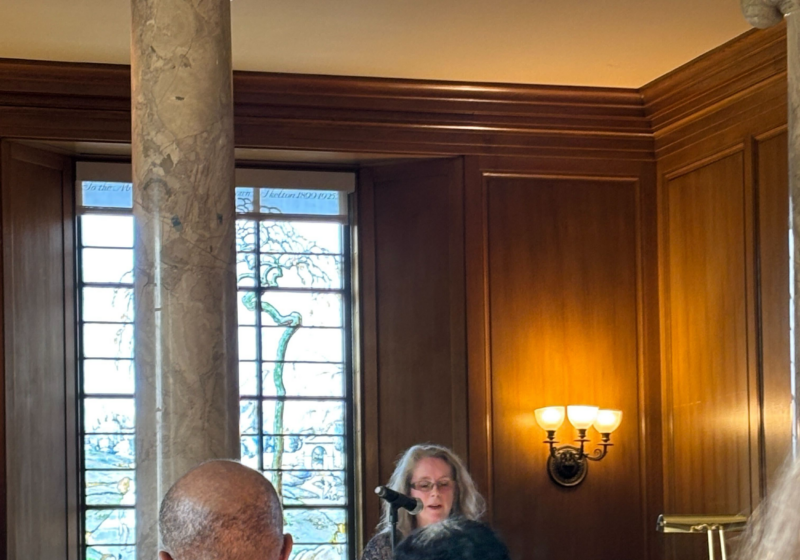Something I aim for when I write Opinions pieces, especially about politics, is to avoid repeating what’s been said a million times. Of course it’s important to support a good position that happens to have already been established. But too often, politically engaged people discover that they’re just rereading the same few takes on whatever the wonks have decided to focus on each week, and the last thing I want as a writer is to waste my audience’s time with old news.
With all that being said, let’s talk about Kamala Harris.
Joe Biden’s pick for Vice President has been known for over two weeks as I write this. Biden’s original announcement spurred tens of millions of dollars to the campaign in independent donations from Harris fans across the country. There’s very little for me to say about her as a candidate that you haven’t already heard.
A well-known, vaguely progressive Democrat with a mixed record on criminal justice, a solid stage presence, and popularity in suburbia seems like a pretty obvious VP pick designed not to cause controversy, but you wouldn’t know it from how people have responded to her nomination.
According to the terminally online on both sides of the political aisle, Kamala is simultaneously radically left and unacceptably moderate; right-wing media has been predictably quick to brand the Senator a “radical leftist,” and anyone remotely familiar with progressive Twitter has seen oodles of articles’ worth of the “Kamala is a cop” discourse.
This is what’s so interesting to me about Harris: not her actual qualifications as a candidate, but the way people from all across the political universe talk about her.
If you ask certain leftists, Harris is a career cop selected as an olive branch to police unions at the most politically inconvenient time possible, another Biden blunder and yet more proof that the Democratic party is totally out-of-touch with the issues of the time. Never mind her clearly genuine concern and generally strong record regarding police violence, or her enthusiastic endorsements from progressives like Alexandria Ocasio-Cortez, Jamaal Bowman, and Rashida Tlaib, the latter of whom still hasn’t endorsed Biden.
If you ask many right-wingers, Harris is a left-wing extremist working to deliver America into the hands of radical elements bent on its destruction. Don’t worry about the actual left-wingers who see her as an open roadblock to their ambitions (which are almost never “to destroy America,” but that’s a topic for another article).
If you ask Harris’s die-hard fans, the “KHive,” Harris is the best thing to happen to the country in decades, but many are hard-pressed to actually explain why — perhaps they find her personal story inspiring, or were impressed with her during the primary debates (like when she essentially called Joe Biden a segregationist), but they don’t often cite her record as the reason for their fanatical support.
All this is an example of celebrity politics; that is, not the influence of celebrities on politics but the celebritification of career politicians. It’s not necessarily new in American politics — George Washington was the most famous man in the country before he was ever elected President — but it’s developed a new kind of reach in the social media age, where online echo chambers allow us to form and reinforce opinions about people we have never taken the time to learn about, and where politicians’ public images have become significantly more important than their policy promises and voting records.
Don’t worry so much about who you’ve concluded she is; worry about what she’ll do if elected to office. Her record is nowhere near well-defined enough to draw conclusions about how she will shape Biden’s policies; the Biden-Harris ticket is riding almost singularly on its promise to repair the extreme damage done by the Trump administration. Its platform — on healthcare, the environment, the pandemic — is nothing spectacular, but palatable by most progressive standards. Despite some obvious problems with optics, on the policy level, this really is a ticket with chops (however poorly it advertises them). Regardless of whoever Harris actually is, she was clearly not selected as some kind of backhanded attempt to declare progressivism dead, nor as a message to conservatives that the forces of the “radical left” have somehow come to dominate the Democratic Party.
Don’t let Harris’s image, however you have experienced it, cloud your judgment about her nomination.
Yes, be aware of who politicians are, but be concerned with what they do.
It may seem difficult to believe right now, but we still live under a state where the government is beholden to the will of the people. Senator Harris, as malleable and opportunistic as she is, might even be especially susceptible to it.
Electoralism isn’t dead yet, but for it to stay that way, we need to be clear-headed about the politics and less concerned with the politicians.





